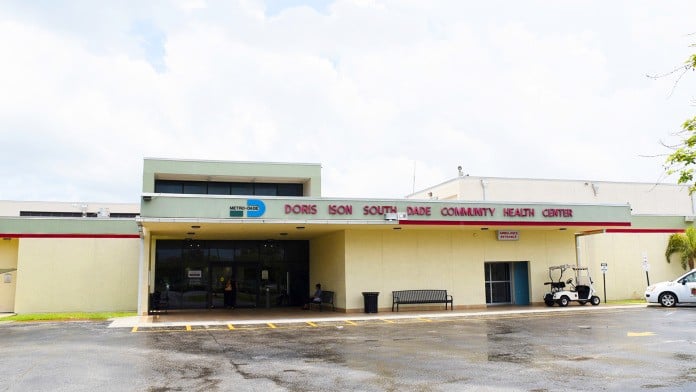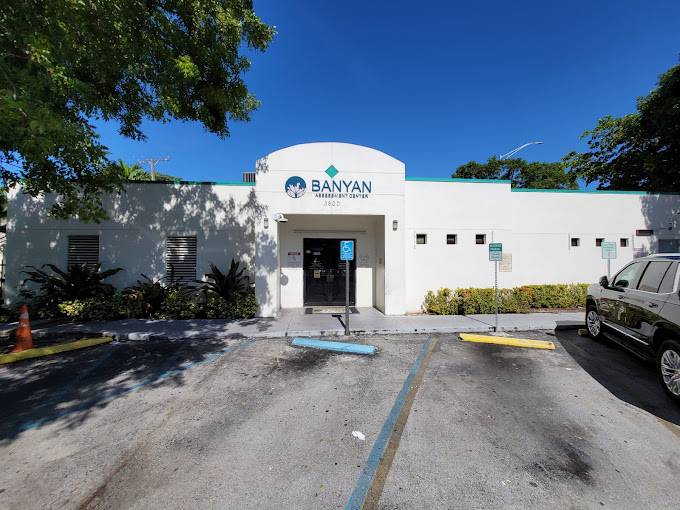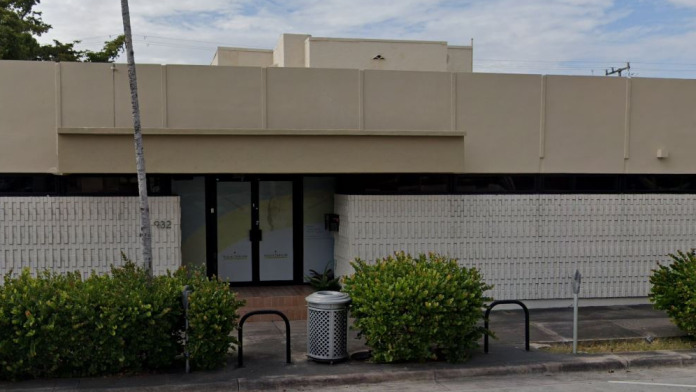About Miami VA Healthcare System – Key Largo Community Based OP Clinic
Key Largo VA Clinic is an outpatient community focused integrated care clinic in Key Largo, Florida. They also serve veterans from the nearby cities of Tavernier, Islamorada and Homestead. The clinic offers outpatient substance use recovery as part of their comprehensive mental health care. They also offer primary care and social support services. You can receive all these healthcare services under one roof, which is super comfy.
It’s worth noting that these services are affordable as well. They accept Medicaid, Medicare and Tricare. You may even benefit from the available financial aid if you meet the eligibility criteria. By keeping costs low, the clinic makes healthcare services accessible to veterans from underserved communities within their healthcare systems.
Recovery in Charming Key Largo
Key Largo VA Clinic is situated along the iconic Overseas Highway or US-1 in the northern part of the Florida Keys. This highway provides a scenic drive south toward Key West or north toward Miami. It is the only highway linking the Florida Keys to the mainland. The area is known for its laid-back and tropical atmosphere with waterfront views and marinas. It also offers access to outdoor activities like boating, fishing and diving, thanks to the surrounding natural landmarks.
The John Pennekamp Coral Reef State Park is situated just two miles away and offers glass-bottom boat tours, among others. Dagny Johnson Key Largo Hammock Botanical State Park is four miles north. Everglades National Park is a bit farther at 45 miles northwest. These are all great places you can explore to make your recovery experience here more exciting. I believe you’ll have ample time for all that because this is an outpatient setting where you attend therapy for a few hours and go home afterward.
Monroe County Transit provides limited public transportation through the Keys. This can potentially get you to and from or close enough to the clinic. However, private transportation or ride-share like Uber may be more reliable.
Help With Substance Use and Related Disorders
Behavioral health is a major issue among veterans. This is more so as studies show a higher rate of PTSD, depression and substance misuse compared to the general public. Key Largo VA Clinic can help you take care of all issues impacting your mental health or emotional wellbeing. This includes substance use and even dually diagnosed mental health issues.
Their therapy equips you with the tools to better handle life challenges that often contribute to substance dependence. They may incorporate proven practices like cognitive behavioral therapy to help you break negative thought patterns, build effective coping skills and prevent relapse. A detailed diagnostic assessment helps enable them to tailor recovery to your unique needs via personalized care planning.
Medication Supported Recovery and Medication Management
Key Largo VA Clinic can offer medication assisted treatment to help veterans overcome opioid use issues. This will be part of your tailored care plan if you’re dealing with opioid use issues or addiction to stimulants like cocaine. The technique uses meds approved by the FDA to manage withdrawal symptoms and curb cravings. It is backed up with counseling to ensure a well-rounded recovery and lasting abstinence. The clinic can also provide psychiatric care including assessment and medication management to support people with dual diagnosis.
Social Support Services To Sustain Recovery
Key Largo VA Clinic offers supportive services that can help you maintain lasting abstinence. This may include access to safe housing, job opportunities and educational programs. They can also help with home health services and legal and transportation aid through linkage to community resources. Their social work team can help streamline your access to these important services.
Latest Reviews
Rehab Score
Gallery
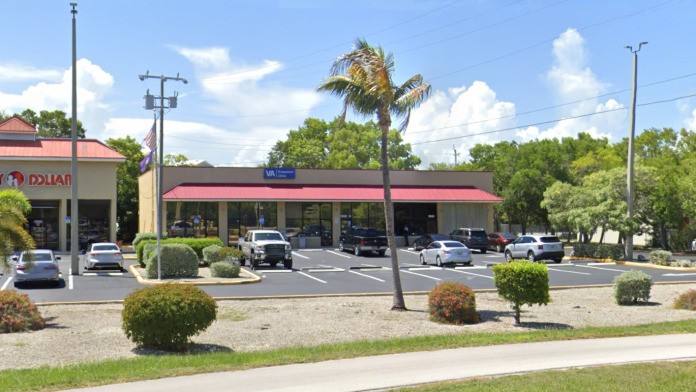
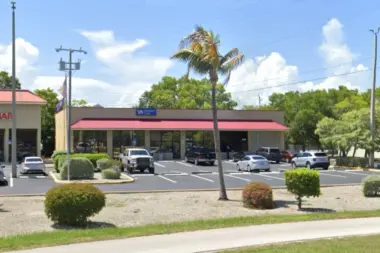
Other Forms of Payment
Private insurance refers to any kind of healthcare coverage that isn't from the state or federal government. This includes individual and family plans offered by an employer or purchased from the Insurance Marketplace. Every plan will have different requirements and out of pocket costs so be sure to get the full details before you start treatment.
Self-pay involves paying for treatment out of your own pocket. You can use savings or credit, get a personal loan, or receive help from family and friends to fund your treatment. If you don't have insurance or your insurance plan doesn't cover a specific program, self-pay can help ensure you still get the care you need.
Medicare is a federal program that provides health insurance for those 65 and older. It also serves people under 65 with chronic and disabling health challenges. To use Medicare for addiction treatment you need to find a program that accepts Medicare and is in network with your plan. Out of pocket costs and preauthorization requirements vary, so always check with your provider.
Military members, veterans, and eligible dependents have access to specific insurance programs that help them get the care they need. TRICARE and VA insurance can help you access low cost or no cost addiction and mental health treatment. Programs that accept military insurance often have targeted treatment focused on the unique challenges military members, veterans, and their families face.
Financial aid can take many forms. Centers may have grants or scholarships available to clients who meet eligibility requirements. Programs that receive SAMHSA grants may have financial aid available for those who need treatment as well. Grants and scholarships can help you pai for treatment without having to repay.
Addiction Treatments
Levels of Care
Outpatient Programs (OP) are for those seeking mental rehab or drug rehab, but who also stay at home every night. The main difference between outpatient treatment (OP) and intensive outpatient treatment (IOP) lies in the amount of hours the patient spends at the facility. Most of the time an outpatient program is designed for someone who has completed an inpatient stay and is looking to continue their growth in recovery. Outpatient is not meant to be the starting point, it is commonly referred to as aftercare.
Completing a drug or alcohol rehab program shouldn't spell the end of substance abuse treatment. Aftercare involves making a sustainable plan for recovery, including ongoing support. This can include sober living arrangements like halfway houses, career counseling, and setting a patient up with community programs like Alcoholics Anonymous (AA) or Narcotics Anonymous (NA).
Treatments
Many of those suffering from addiction also suffer from mental or emotional illnesses like schizophrenia, bipolar disorder, depression, or anxiety disorders. Rehab and other substance abuse facilities treating those with a dual diagnosis or co-occurring disorder administer psychiatric treatment to address the person's mental health issue in addition to drug and alcohol rehabilitation.
Mental health rehabs focus on helping individuals recover from mental illnesses like bipolar disorder, clinical depression, anxiety disorders, schizophrenia, and more. Mental health professionals at these facilities are trained to understand and treat mental health issues, both in individual and group settings.
Programs
Adult rehab programs include therapies tailored to each client's specific needs, goals, and recovery progress. They are tailored to the specific challenges adult clients may face, including family and work pressures and commitments. From inpatient and residential treatment to various levels of outpatient services, there are many options available. Some facilities also help adults work through co-occurring conditions, like anxiety, that can accompany addiction.
Recovery is most successful when clients feel accepted and validated by their peers and treatment providers. Facilities that offer LGBTQ-inclusive programming are committed to creating a safe space where everyone can grow and recover without fear of judgment or discrimination. They will have dedicated policies in place to create a safe and supportive environment that fosters free expression.
Serving in the military is both mentally and physically challenging, and can result in trauma that persists even after combat ends. Military programs are tailored to the specific and often complex needs of active duty personnel, veterans, and military families. Clients often access these programs through the U.S. Department of Veterans Affairs (VA).
Young adulthood can be an exciting, yet difficult, time of transition. Individuals in their late teens to mid-20s face unique stressors related to school, jobs, families, and social circles, which can lead to a rise in substance use. Rehab centers with dedicated young adult programs will include activities and amenities that cater to this age group, with an emphasis on specialized counseling, peer socialization, and ongoing aftercare.
Clinical Services
Cognitive Behavioral Therapy (CBT) is a therapy modality that focuses on the relationship between one's thoughts, feelings, and behaviors. It is used to establish and allow for healthy responses to thoughts and feelings (instead of unhealthy responses, like using drugs or alcohol). CBT has been proven effective for recovering addicts of all kinds, and is used to strengthen a patient's own self-awareness and ability to self-regulate. CBT allows individuals to monitor their own emotional state, become more adept at communicating with others, and manage stress without needing to engage in substance abuse.
Whether a marriage or other committed relationship, an intimate partnership is one of the most important aspects of a person's life. Drug and alcohol addiction affects both members of a couple in deep and meaningful ways, as does rehab and recovery. Couples therapy and other couples-focused treatment programs are significant parts of exploring triggers of addiction, as well as learning how to build healthy patterns to support ongoing sobriety.
Research clearly demonstrates that recovery is far more successful and sustainable when loved ones like family members participate in rehab and substance abuse treatment. Genetic factors may be at play when it comes to drug and alcohol addiction, as well as mental health issues. Family dynamics often play a critical role in addiction triggers, and if properly educated, family members can be a strong source of support when it comes to rehabilitation.
Group therapy is any therapeutic work that happens in a group (not one-on-one). There are a number of different group therapy modalities, including support groups, experiential therapy, psycho-education, and more. Group therapy involves treatment as well as processing interaction between group members.
In individual therapy, a patient meets one-on-one with a trained psychologist or counselor. Therapy is a pivotal part of effective substance abuse treatment, as it often covers root causes of addiction, including challenges faced by the patient in their social, family, and work/school life.
Nicotine Replacement Therapy (NRT) is a way of getting nicotine into the bloodstream without smoking. It uses products that supply low doses of nicotine to help people stop smoking. The goal of therapy is to cut down on cravings for nicotine and ease the symptoms of nicotine withdrawal.
Trauma therapy addresses traumatic incidents from a client's past that are likely affecting their present-day experience. Trauma is often one of the primary triggers and potential causes of addiction, and can stem from child sexual abuse, domestic violence, having a parent with a mental illness, losing one or both parents at a young age, teenage or adult sexual assault, or any number of other factors. The purpose of trauma therapy is to allow a patient to process trauma and move through and past it, with the help of trained and compassionate mental health professionals.
Amenities
-
Residential Setting
-
Private Setting
Accreditations

The Joint Commission, formerly known as JCAHO, is a nonprofit organization that accredits rehab organizations and programs. Founded in 1951, the Joint Commision's mission is to improve the quality of patient care and demonstrating the quality of patient care.
Joint Commission Accreditation: Yes
Accreditation Number: 4506
Contact Information
105662 Overseas Highway
Key Largo, FL 33037


